Michael Moreci's Blog, page 2
April 20, 2019
A Fork in the Road: A Black Star Renegades story by Mike Chen!
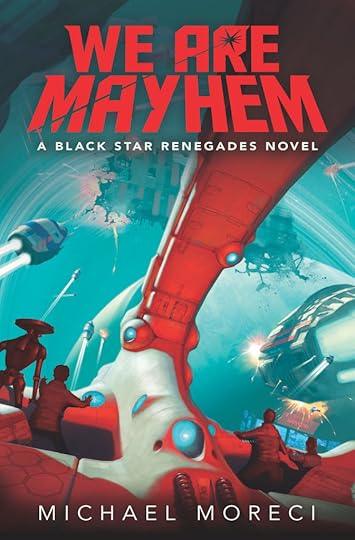
I have a really, really special treat for you all today:
Somehow, my novel, Black Star Renegades (and its sequel, We Are Mayhem, which was just released last week!), inspired Mike Chen—the amazing writer behind the wildly successful and amazingly good sci-fi novel Here and Now and Then (which is on sale for Kindle for only $2.99 until Sunday!)—to craft his own fan fiction. And let me tell you—it’s awesome. I’m actually apprehensive to share it because I’m a little jealous, that’s how good Mike is at writing in the world I created.
Nonetheless, the story is truly wonderful. It’s fun and smart and captures Black Star Renegades so well. And, it focuses on my favorite buddy duo: Mig and 4-Qel as they get into a…let’s call it a unique situation.
Without further adieu, here’s Mike’s BSR story, A Fork in the Road!
4-Qel wanted to smirk.
He couldn't, of course, not with the static nature of the various sensors and projectors in his head module. Despite the fact that they were assembled to look like a face, they never operated with the wasted energy of emotions. However, 4-Qel had spent enough time around organics to learn most of their mannerisms, and one of the most interesting and effective ones was the curl of one’s mouth when something absurd unfolded.
Such a look would have been perfect upon hearing Mig's date ask the question “Does that thing have to be here?”
The target for the would-be smirk was not the female Asahee sitting with them, but rather Mig, who planned this whole thing and was thus responsible for his own insipid behavior tonight. How could he think about expensive meals and courting a sexual partner when they had things to do and the Crain bounty on their heads (well, Mig’s head)? This course of action clearly lacked in all logic. Yet Mig insisted on keeping the reservation. The most acclaimed Loo-Kas steak in the sector apparently made it worth the risk.
Humans failed terribly at prioritization.
“I'm not waiting another nine months to get a table at Kas Yevvem,” Mig justified several weeks ago. “They are super jerks there. You have to order right, behave right, even eat right or they won’t let you back in. You cancel a reservation or show up late and they’ll blacklist you for five years. We’re going, bounty or no bounty.”
4-Qel argued that a simple Vikirian rice blend calibrated an organic body’s sustenance requirements but Mig persisted. A point, in fact, Mig reiterated two weeks ago when he somehow managed to convince the ventun dealer at the Sea of Nebulae Casino to join him. Shortly after she'd agreed, 4-Qel noted that the Asahee female named Talaria with blue skin and glowing eyes most likely came to that conclusion because she was interested in award-winning Loo-Kas steak and not because she was considering him for practicing inter-species mating rituals.
4-Qel watched Mig silently squirm, his sensors detecting a rise in the volume of sweat gradually building on Mig's forehead.
“Well, Four-Qel is kind of like my bodyguard. Because,” Mig cleared his throat, “people with my, um, status are often considered valuable assets. Dangerous, even.” Mig huffed out the last word with a raised eyebrow, which seemed pulled from those holo films 4-Qel caught him watching the other day.
It was true, they did hold some value to people. After the Crain incident, 4-Qel had maintained a constant assessment of the bounty on Mig’s head. However, Mig omitted the fact that the bounty was a level seven, which meant that the reward was probably less than the cost of this meal and was mostly a headache for logistical customs clearances than anything else; it certainly did not make him “badass" as he would colloquialize. Still, 4-Qel remained silent. If Talaria bothered sticking this out with Mig long enough to learn the truth, Mig’s own jigsaw puzzle of an explanation would be his own problem.
“Well, can it sit? There's an extra chair right there.”
Talaria's irritation raised the internal detection in his threat matrix. Threat, as in the question clearly started to befuddle Mig, which would eventually lead to Mig making bad choices -- either to impress Talaria or in self-indulgent sulking -- which then opened themselves up to all sorts of risks, particularly with the Crain bounty tracking them, level seven or not.
4-Qel did not want his many assassin skills to be tied up in undoing the paperwork mess of a level seven violation. “I can sit.”
“Oh. It talks.” Rather than relaxing Talaria, her shoulders tensed up even further. “Charming.”
“Of course I can talk. And of course I can sit. My legs are more than just decorative.”
“No, I mean, can you -- will you -- sit? Because it's kind of creepy having you just stand there watching me. Besides,” she said, leaning forward, “it's drawing attention.”
Mig craned his neck from side to side. 4-Qel scanned as well, though without Mig's obvious physical gestures. “If you're worried about danger,” Mig smiled, a toothy grin that pushed wider than his usual expressions, “I think we're clear. Trust me.” Mig sat up straighter, his chest puffed out as if he took in a breath and forgot to let it go. “I'm a pro in these situations.”
“I'm running the standard scans you request when your body's fear response is high. I'm not detecting any imminent threats either, “ 4-Qel said. “Shall I add it to the rolling log of the past week? The count is currently twelve.”
“Thank you, Four-Qel,” Mig said, his posture suddenly deflating. “We keep that data for, you know, surveillance archives. Gotta stay current.”
“Of course,” Talaria said. Her tone was as flat as her eyes, and she scanned past Mig towards the kitchen door.
As 4-Qel agreed upon earlier, he left out the part about having various weapons and defense protocols ready should something suspicious arrive -- everything from precision flatware throwing (with enough velocity to potentially behead depending on the organism's size and bone density) to varying types of poison in an auxiliary storage compartment on his back panel (the “poison shelf,” as Mig liked to say). This was in addition to the guns they had to check in at the restaurant lobby.
“Well, look,” Talaria said. 4-Qel noted that Asahee gestures for annoyance were very similar to human ones. “Asahee have this thing where we can sense optic observations. Eyes, cameras, whatever. It makes us good casino employees. But the more it happens, the more I feel it. It's like having someone constantly tapping on your shoulder. And right now there are a bunch of never-ending taps on my shoulder because they're all looking at us. The guests, waiters, the bussers, even the bartender androids. Everyone is wondering why this giant hulking machine is getting in the way of their nice dinner. So please sit down before I get a headache or they kick us out. Or both.”
4-Qel complied and sat, his just-too-big frame causing elbows to jut out at obtuse angles, bumping into the passing waiter. The humanoid woman grumbled something under her breath, and 4-Qel scanned her facial features into his memory just in case retribution would be required later on.
Talaria closed her eyes, her shoulders rising and falling with deep breaths through her neck gills. “That's much better. Thank you Fork.”
“Four-Qel.”
“What?”
“My designated identifier is Four-Qel, not Fork. I'm not sure how you missed the final syllable as Mig clearly stated my name several times during the course of the evening.” Both Mig and Talaria shuffled back and forth in their seats, similar grimaces on their faces. 4-Qel calculated the odds that levity might relax the situation. “Perhaps your ears don't work. Do have a fork,” he paused, as he’d observed organics do for emphasis, “stuck in them?”
“Excuse me?” Though 4-Qel didn't have a deep database on Asahee physiological traits, her expression clearly displayed that she didn't get the joke. The small ridges on the top of her head peaked upwards as she shook her head.
“I'm sorry,” 4-Qel said. “That was my mistake.”
“Four-Qel doesn't really get--"
“I should have said ‘audio detectors’ instead of ‘ears’, as Asahee have no visible organs for such function. My apologies, it is clear Asahee haven't had the physiological evolution to include ears yet. Do not worry. They will come in several million years.”
Based on 4-Qel’s thermal sensors, the surface temperature for both Mig and Talaria rose incrementally to signify an emotional response. However, it appeared they were experiencing contradictory emotions. During that scan, Mig buried his head in his palms while Talaria looked away from the table's occupants. Why organic species put themselves through such self-inflicted problems, 4-Qel didn't know.
Perhaps killing them would ease both of their suffering.
4-Qel began determining the easiest and most quiet way to do so should the need arise when the waiter arrived with two covered plates.
“Ah, excellent,” Mig said, his face washed over with relief. “Talaria, I'm happy to share the sector's finest with you. Cheers.” He held up his glass, and Talaria seemingly relaxed at the gesture before clinking her glass against his.
“Shall I toast with the coolant in my elbow?” 4-Qel asked. Mig’s groan was probably only caught by 4-Qel’s audio sensors and no organic beings (especially not the ear-less Asahee). This time, the question was a calculated judgment. Clearly neither Mig nor Talaria enjoyed this evening, and now adding nonsensical suggestions would expedite the end of the meal.
“Quiet, Fork,” Mig said from the corner of a frozen smile.
“Your meals. Enjoy.” The waiter pulled the covers off to reveal blackened, ashen lumps and a stack of soggy green sticks, which were presumably vegetables at some point.
“I, uh…” Mig bit down on his lip so hard 4-Qel considered zapping it with a plasma stitch to minimize blood loss.
“Is there a problem, sir?”
“Well, it’s just that…” Tiny bits of ash sprinkled away as the tine of Mig’s fork poked at the supposed meat.
4-Qel’s scanners began processing the hunks on the table. “I can confirm that this meat was cooked with an open flame similar to that of an incinerator used for disposing of bodies.”
“We pride ourselves at Kas Yevvem for flawless culinary technique. If you are unsatisfied, you and your compatriots may have takeaway containers and leave,” the waiter shot a look at 4-Qel.
Talaria sighed loud enough to be heard over the din of the restaurant, the chatter of guests and the coming and going of wait staff and cooks. The waiter -- a tall, thin being native to Jaksallia with pale skin, round head, and deep set black eyes -- broke his cool facade and let a smirk through. It lasted for a mere fraction of a second, something that organics would miss but 4-Qel replayed in his internal visual monitor to confirm.
There it was. In slow motion, the waiter’s mouth quivered, then the right side tilted up and the eyes relaxed, only to snap back to neutral 0.89 seconds later. Just like a human would.
4-Qel saved the image for future reference.
“You know what,” Talaria said. Her napkin tossed onto the table. “It’s late. I’ll take a cab back to Sea of Nebulae. I have to work early tomorrow anyway. Take it. Enjoy.”
“It’s fine. We’ll be fine.” Mig turned to the waiter. “It’s fine, thank you.”
“Mig, seriously. I should get some rest--”
“No wait, look, the food is fine.” The plate clinked as he cut into it, more ash particles floating into the air. He took in a bite, then coughed, plumes of dust blowing outward over the table.
4-Qel scanned the room, processing and capturing visual information around them. Their table lit up with a floating hologram. “Here is a side by side comparison of your meal and a standard Loo-Kas steak from the table twelve meters behind you.” Mig’s piece looked like a lump of charcoal compared to the robust cut floating next to it. “While Loo-Kas preparation does involve using an open flame to finish the sear, I believe the burn level and the relatively small portion indicates they do not want us here. You used the term ‘super jerks’ and all evidence points to that. My conclusion is that this is a waste of our time.” 4-Qel turned to the waiter. “Your insolence has been noted. I will rectify the situation.”
“No, no, no. Talaria, I swear, Four-Qel -- Fork -- is just joking. Seriously,” Mig choked out laughter and looked at the waiter, “I never said that. This is fine.”
4-Qel loaded the conversation from his memory archives. “‘I'm not waiting another nine months to get a table at Kas Yevvem,’” Mig’s voice said in the replay. “‘They are super jerks there.’”
“Duly noted,” the waiter said. “You may leave at your earliest convenience. Please do not forget to pay the bill. Otherwise, there will be a bounty assigned based on your records.” With that, the waiter turned on his heel and began an even clip to the back kitchen. 4-Qel calculated the exact velocity and angle to throw the steak knife with options to stab, slice a major artery, or sever the head. Before he could decide, Talaria stood up.
“I gotta get out of here before you piss them off even further and get me blacklisted. I'd still like to try it someday. Someday without this half-functioning talking dishwasher ruining every moment.”
“Wait, Talaria. This is all a mistake,” Mig said.
“Your android is insane.”
“I cannot be insane,” 4-Qel interjected. “My decision algorithms are based on logic.”
“Whatever. Don’t come to my ventun table. If I see you or this hulking green mess in Sea of Nebulae, I’m calling security right away.”
“Do not be disappointed, Mig,” 4-Qel said as Talaria walked away. “The research you requested on human-Asahee interspecies sexuality shows required positions that would be difficult for you to attain without proper stretching. Your evening would not have ended well regardless.”
Flecks of ash flew into the air with each progressive poke of Mig’s fork. He stabbed the soggy vegetables and jammed it into his mouth. “I gotta pee,” he said in a low voice.
“That is a good idea. Stress contracts the human bladder.”
4-Qel waited until Mig passed the various tables, head low and eyes focused on the floor the entire time. He disappeared underneath the hovering icons for the universal lavatory, and only then did he allow himself to analyze the situation.
Before him sat twenty nine tables of various sizes, each holding between two and six occupants of differing species -- mostly human, as the chefs were human and cooked primarily with their digestive systems and tastes in mind. 4-Qel loaded a schematic of the building; the far-left corner’s double doors led to the kitchen and back office, which also had a secondary channel to the bar on the other side. 4-Qel also noted the android bartenders -- by their make and model, they lacked the processing power or sensors to come close to his precise mastery of violence.
They posed no threat.
Given that their weapons were checked in at the main lobby, a full frontal assault would be unwise. In addition, any sort of obvious massacres would raise their bounty level from its current paperwork-risking level seven to at least a level three, which would entail some level of bodily harm -- either by the bounty hunters or the Praxis authorities. With the profile of the restaurant, such a body count would create alerts that might follow them beyond this sector, and that wouldn't help either of them.
So, murder was out, at least of everyone in the building. Perhaps a smaller group? The wait staff delivered the message. They were certainly in on the proverbial joke. The cooks were the ones that prepared the meal. They followed directions. The manager gauged the pulse of the clientele. And the clientele, they stared and whispered about 4-Qel, they probably made the complaints.
Numbers calculated and data crunched, each group isolated to their sphere of influence and potential ripple effect regarding local authority, potential of getting caught, and level of injury for all parties. At the last millisecond, 4-Qel decided to factor in how upstanding each group tended to be based on their demographic stereotypes.
It wasn't much but it did tip the scales to one solid conclusion.
Murder wasn't the smart choice here. At least for most of them.
From his poison shelf, 4-Qel removed two separate capsules, one red and one yellow. He held them both in his mechanical palm and vibrated his wrist joint to activate the compounds in each. A maintenance cover slid open just above his waist, then another beneath it and yet another beneath that one, exposing the outer surface of his power core. Heat radiated from the opening, and 4-Qel placed the yellow capsule immediately next to the source for thirty-two seconds. When the yellow capsule finished, he did the same thing with the red one, except positioning it out further by seven inches at half the heat.
One cooked. One simmered. How appropriate.
4-Qel reached into a storage compartment built into his hip, one with a stash of physical credits and a credit chip designated to slice accounts and transmit funds away. Mig had him keep this in case they needed to bribe their way out of a situation, then steal the credits back later. But there would be no stealing here. Not by him, anyway.
4-Qel placed the credits in two stacks, one tall, one short.
His optical scanners went into thermal detection to pick up the presence of waiters moving between the crowd and the tables. When one came within earshot, 4-Qel sliced open the tops of each capsule and executed the designated scenario workflow.
Preparation: Pour the yellow one’s odorless and colorless liquid on the large stack.
Preparation: Sprinkle the red one’s on the small stack.
Observation: Wait several seconds until both compounds dried into the cash stacks due to air exposure.
Preparation: Disable the credit chip, rendering it useless for anything other than giving the appearance of a thief's tool.
Then execution.
“Waiter,” he called, his thin arm raised.
This would be more fun than bribery. And messy.
The waiter -- this time, a human female with visibly annoyed pursed lips and a crisp gait -- walked over to the table, making her way the longest route possible. “May I help you?”
“I would like to pay the bill. Keep the change, as the saying goes,” 4-Qel said, pointing at the large stack. As anticipated, the waiter picked it up without a word and began to march towards the processing center next to the kitchen doors. 4-Qel set his scanners to detect the gas being traced around the room from the stack; he waited a suitable amount of time before speaking up. “Oh, waiter.” 4-Qel’s voice projected across the room, drawing the eyes of diners and staff. “One more thing.”
The waiter returned, still carrying the tainted credits but walking through the maze of tightly packed tables and criss-crossing employees, ensuring effective distribution of the chemical. “And this,” he pushed the small credit bundle forward, “is for the manager. We apologize for causing any grief. Please see that it is delivered immediately. Can you please count the credits to verify their total?” 4-Qel spoke at a decibel level selected to ensure the other wait staff heard.
There it was, another favorite expression: the side eye. 4-Qel captured the expression in his optic memory for future reference. As she counted aloud, 4-Qel slipped the credit chip and empty capsules into her pocket.
The waiter marched away and disappeared into the kitchen doors, presumably to the manager’s office. 4-Qel continued tracking, and even took a millisecond to complement himself on such an ingenius yet subtle plan when Mig emerged.
“This is the cleanest god damn toilet I've ever seen,” Mig said when he returned. “I had to stop and admire the architecture. Why is it that the bathroom here is nicer than every place I've stayed at in my life?” Mig smiled, one somewhere between amused and distraught. The chair glided back to make space for him. “Anything interesting happen?”
4-Qel ran an internal calculation to determine various levels of “interesting" while factoring in variables of “need to know" and “illegal.” “No. But we should leave.”
A heavy sigh filled the quiet dinner space, so much so that the couple at the next table glanced over at Mig. He looked around for the wait staff, then at the charred meat on his plate, then at 4-Qel. “I gotta pay the bill still.”
“I paid already.” 4-Qel said flatly. Mig raised an eyebrow and shot a look, to which 4-Qel calculated that he should respond quickly -- but hesitant enough as to prevent looking like a prepared statement. Two point three seconds later, 4-Qel spoke. “We shouldn't spend further time around people like this. It's not good for our health.”
“‘Our’ health?” Mig let out a weary laugh while shaking his head.
“Figure of speech, Mig.” The actuators in 4-Qel’s legs activated and he cleared the chair in one motion.
“You're right. Screw these assholes.” Mig stood up and peeled his coat off the back of the chair.
“Yes. Screw them indeed. They should be working in janitorial service cleaning overflowing septic systems. Or the burned remains of their cruel leader.”
The great thing about Mig and 4-Qel’s relationship was that 4-Qel could say things like that and Mig would just assume he was joking, perhaps even lecture him about understanding the concept of humor. But Mig didn’t know that 4-Qel had left a small audio transmitter behind, a tiny chip pressure-embedded on the underside of the table.
Because even though Mig sometimes proclaimed that Qel units lacked the ability to comprehend humor, even with their advanced learning algorithms, 4-Qel understood the definition of the concept: an unexpected juxtaposition and incongruity between a situation and the elements in said situation.
Like, for example, immense intestinal problems for nearly every customer in the sector’s most expensive restaurant stemming from an odorless vapor tracked around the room. And a manager’s office that eviscerated itself in white-hot flames thanks to a compound designed for timed combustion when cooked at the exact time and temperature. And the evidence sitting in the pockets of a disgruntled waiter, along with tech to steal from her superiors.
That was all very humorous.
As they went through two sets of pressurized doors to the parking chambers of the orbital facility, 4-Qel amplified his connection with the transistor to maximum, including specialized boost for the frequency most associated with distress by humanoid life forms.
The various sensors and projectors in 4-Qel’s head module were assembled to look like a face, though they were static, expressionless. However, as he walked to the transportation lobby to reclaim their weapons, 4-Qel knew that if he could smirk, he would.
So much fun, right? Thank you, again, Mike, for your amazing contribution to the BSR universe. And friends, don’t forget to pick up Mike’s debut novel, Here and Now and Then—it’s a time travel story like no other, and I highly, highly recommend it.
December 31, 2018
2018--Last Call

Here we are—last call for 2018. And it has been…a year. A very full—arguably overstuffed— year.
I can pretty much trace the year in two very different, yet connected, narratives. The first narrative is the public one—what everyone saw. And that story was, truth be told, a great one. I have an abundance of things to be grateful for, and I am. With every fiber of my being, I am.
The year started off fast—really fast. My first novel, Black Star Renegades, was released on January 2, and that book has taken me on a rollercoaster ride that’s still chugging along to this day. And let me tell you—it’s been an amazing ride. I have loved the book world. I loved writing this book (and its sequel); I loved touring with it, making author friends, meeting booksellers, meeting librarians, and becoming—I hope—a good literary citizen. Becoming a published novelist, honestly, has been one of the best things that has happened in my writing career.
And let me tell you all something—I owe so much of that to you. Here’s a piece of publishing insight: Back when I was a young pup in the publishing world (meaning, February), my regional sales rep explained something important to me. She said that they key to a successful book is for it to continue to sell. Because the reality is that, of all the books that are published every year, only a teensy, tiny bit of them become bestsellers. What happens, waaaaay more often, is a book is released, it sells a few copies for a month or so, and then it vanishes. It doesn’t sell hardly another copy. Black Star Renegades has been out for a year now (it’ll be a year on Wednesday), and we have sold regularly and consistently for 52 weeks. In fact, this December—because the holiday, but still—was nearly as good, sales wise, as the month the book was released. And that, my friends, is why I express my deepest, deepest thanks to you. You have made my debut a success; you’ve made this thing I’ve come to love so very deeply a worthwhile endeavor. I can’t begin to say how much that means to me.
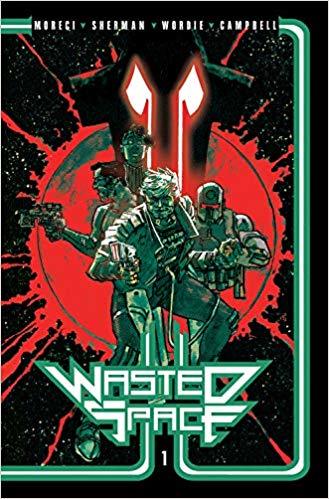
The same sentiment extends to Wasted Space, my comic series with the best people in the biz—Vault Comics. Not only did our dirty little space adventure release to blistering reviews, but the first issue sold out and went to three printings. That’s crazy. The second and third issues went back to second printings, and the other two would have done the same if their release wasn’t so close to the release of the trade paperback. I’ve had the time of my life writing this book and collaborating with, as far as I’m concerned, the best team in comics. Hayden, Jason, Jim, Adrian, Tim, Kim: I couldn’t ask for better. I feel like I’m doing some of my very best work on this book, and I can’t wait for it to return with issue #6 in January.
And, of course, this recollection wouldn’t be complete without mentioning Star Wars. Have I mentioned I’m a Star Wars fan? Is that news to anyone?
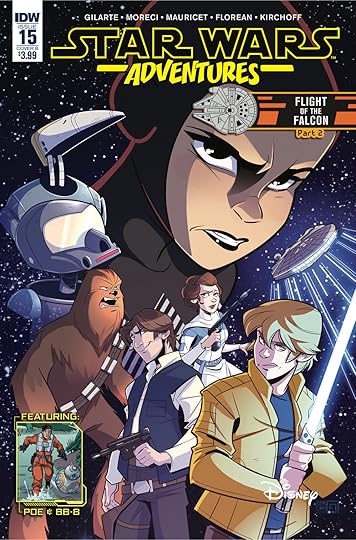
If I had to pinpoint a highlight of my year—one single moment—it was having my comic series announced by Lucasfilm on their panel at San Diego Comic Con. I was in the audience, as a fan, and when the Flight of the Falcon storyline was announced (that’s what I’ve been writing) it pretty much took all my will not to burst into tears. And no, I’m not kidding. A part of me—a big part of me—had been waiting for that moment all my life. To have it happen on the biggest stage in nerdom was unreal. I still almost don’t believe it. And now, seeing my name associated with Star Wars is something I can hardly comprehend. But I love every second of it; working with Lucasfilm and IDW has been nothing short of a dream—heck, I even visited the Lucasfilm offices this year!

And to top it all off—I wrote Archie! And Adam West Batman! I’ve been reading Archie for as long as I can remember; I remember, distinctly, the stack of digests I’d keep next to my bed and how I’d stay up at night, reading them with a flashlight, suppressing my own laughter. Strangely—and wonderfully enough—I’ve caught my son doing the same thing.
But, like I said before, it hasn’t all been roses. I can’t, and won’t, get into specifics, but I’ve had a good many professional hardships this year. I’ve struggled, a lot, with my role in the comics community, for a number of reasons. Truth be told, there were a number of times that I was close to calling it quits. I was so heartbroken, so frustrated, so…exhausted. Working in comics can be trying sometimes, let me tell you. It’s a small industry, and that can be great, but it can also be terrible. There’s a lot of, for lack of a better term, gaming that goes on behind the scenes—a lot of nastiness. I’ve likened working with a certain publisher to being stuck in Westeros—and that’s not exactly a compliment. And I guess I was naïve about all of this for a long time. But this year, I was exposed to a lot. More than I cared to ever see or know, and it affected me in a major way. Resultant, I was put in tough spots this year. I was lied to, led on, used, and disregarded by people I put my trust into, and that nearly broke me. There was a stretch this year where I was as low as I’d ever been in comics.
All of that stuff, combined with the relentless toxicity that everyone knows about (Comicsgate, of course), buried me. It really did. But, we all take our lumps sometimes. And part of this year, it was time for me to take mine. I learned a lot; I grew, and I recognized changes I need to make, in myself and for myself.
Which brings me to 2019—a year of change.
Change in what way? Well, my mom once gave me some sage advice: “Sometimes, to realize what you want to do, you have to find out what you don’t want to do.” Like usual, my mom is 100% right. And this year, I found out the hard way what I don’t want to do, and through that, I’ve gained maybe the best clarity I’ve had in my career.
What I want to do, first and foremost, is better. I feel—hell, I know—I haven’t produced my best work. No way, no how. And the only thing stopping me from doing that is me. I want to be better, I want to be more. I’m ambitious, creatively and professionally. I want more for myself, and if it so happens that my wings burn up before I get to where I’m going, I’ll live with that. And I won’t, for a moment, regret attempting.
Fortunately, after what I’ve experienced this year, I’m in a better position to do my best work. I know what I want and, hopefully, I know how to get there. I’ll be working harder than ever—doing a bit less, but working harder at it. This requires me to be off social media a bit (not that I’m on it a terrible amount), so please excuse my absence—assuming it’s missed.
I know this is nebulous, and I’m sorry I can’t be more specific. Much of this I either can’t announce, or it’s still very much a work in progress. But here’s what I can say about what’s to come in 2019:
-Wasted Space returns in January with issue #6
-The paperback edition of Black Star Renegades will be released this January
-And speaking of BSR, its sequel, We Are Mayhem, comes out in April
-My Battlestar Galactica series—titled Twilight Command—launches in February
-My Flight of the Falcon/Star Wars comics are being collected into one trade paperback, and that’ll be out in July
-The collected edition of my Archie Meets Batman ’66 is set for an April release
-I wrote the graphic novel adaptation of Artemis Fowl, and that’s out in June
From there…hold onto your butts. Because there’s some good stuff coming. Here’s some vague looks:
-A new horror comic series with my brother Tim Daniel—we previously collaborated on Curse and Burning Fields, which is some of the best stuff I’ve ever done, and this book we’re working on…it’s the best yet. Trust me. This book—I cannot wait for this book. It’s scary, it’s personal, and it’s going to knock your socks off.
-A horror/sci-fi series with one of my favorite horror writers—he’s written movies you love, believe me, and to be collaborating with him has been so damn cool. Our book is weird as hell, but it’s super fun and pretty darn scary.
-A horror novel! Can’t say much on that one just yet…
-An ongoing horror series, writing a very, very cool scary take on an awesome character.
-Two other things that I definitely can’t talk about, Yet.
So, that’s it. That’s my 2018. It had ups, it had downs. I took my successes in stride same as my failures, and now it’s time to start all over again. But this time—I’m doing it better than I ever have before. That’s my 2019 promise to myself.
All the best to you—have a great 2019!
December 4, 2018
New Books, New Books...
Two of them, recently announced! In cast you missed it, here’s the news:
First up, I’m the new Battlestar Galactica writer! Starting this winter from Dynamite, I’m stepping in and writing a brand-new, canonical BSG story set between seasons 2 and 3 of the show (which means it’s during the Cylon occupation of New Caprica). My series features an entirely new cast of characters, as well as some returning favorites. I’m huge, huuuuuge BSG fan—I've watched the new series numerous times—so this is truly a dream come true. Find Battlestar Galactica: Twilight Command in stores this February—so say we all!

Next up, I’m writing the official adaptation of Artemis Fowl! I love this book so much—and for those who don’t know, Artemis Fowl follows a young criminal mastermind, Artemis Fowl, who hatches a scheme to steal gold from…well, I don’t want to give that away. Let’s just say Artemis is stealing from people not of this world. The novel itself is an absolute delight; it’s fun, thrilling, and wildly imaginative. It was a pleasure to help adapt Eoin Colfer’s great story to the comics page.
Find the Artemis Fowl graphic novel in stores in June—just in time for the release of the Artemis Fowl film adaptation, coming from Disney and directed by Kenneth Branagh!
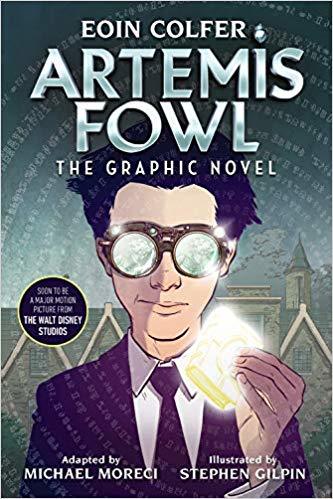
September 26, 2018
I WROTE STAR WARS!!!
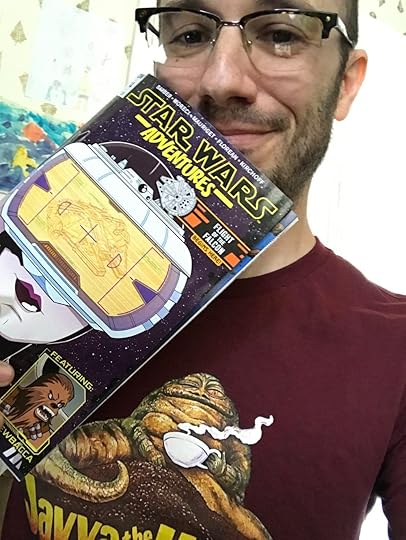
I’ve been talking about this for months on social media, so I don’t think there’s much more I can say, other than this:
I’m holding a copy of a STAR WARS comic in my hands, and my last name is on the cover.
This is one of the happiest moments of my creative life.
Find Star Wars Adventures #14 in stores today, marking the start of my run. I hope you love reading it as much as I loved writing it.
And may the Force be with you : )
September 25, 2018
Upcoming Schedule
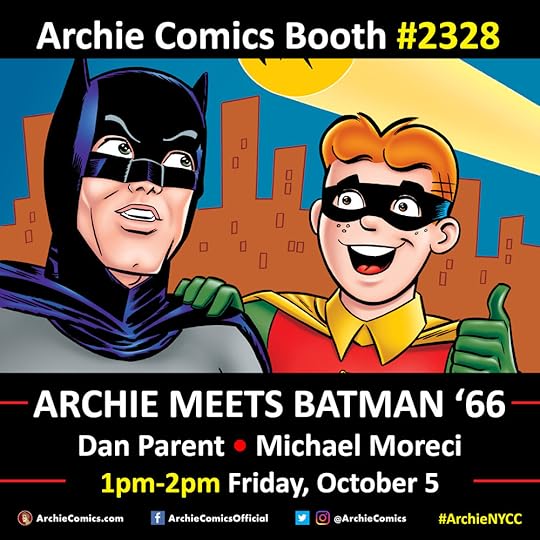
Hey friends!
Well, it’s fall, which means…the same as every other season! Like summer and spring, etc., I’ll be heading into the wild for various events. My fall schedule is relatively light, but I will be traveling a bit; spring looks very heavy already, so maybe it’s best to cool things off for a bit.
Anyway, here’s where I’m going to be in the coming weeks:
-From September 28 to September 30, you can find me pulling double duty at the Baltimore Book Festival and Baltimore Comic Con! Here’s what my schedule looks like:
On Friday, I’ll be tabling at BCC from 1 until 4; then, I’ll be dashing off to the BFF for a panel—Heroes, Villains, and Everyone In Between—from 5 until 6
On Saturday, I’ll start the day at BFF, appearing on a panel—…In Space!—from 11 until noon. Then, I’ll be signing books from noon until 1 at the Science Fiction and Fantasy Writers of America tent. From 2:30 until 7, I’ll be at my table at the BCC.
On Sunday, I’ll be tabling at the BCC all day, from 10 until 5.
-From October 5 until October 7, I’ll be at NYCC, though I don’t have many public appearances; most of my time is occupied by meets and with my kids, who are traveling with me this year (for their first convention). But, I do have a few things:
On Friday, I’ll be signing at the Archie Comics booth with Dan Parent from 1 until 2
On Saturday, I’ll again be signing at the Archie Comics book with Dan parent, this time from 3 until 4.
On Sunday, I’ll be on one panel—Futurecasting, from 2:45 until 3:45. I’ll also be signing at the Autographing Area, Table 1, from 4 until 5.
-Locally, on October 10, I’ll be signing at Alley Cat comics from 3 until 7, celebrating the release of the Wasted Space trade paperback collection.
-On October 18-19, I’ll be at the YAS Book Con.
On Thursday, I’ll be speaking at a local high school. Though I think that’s closed to students only.
The next day, Friday, I’ll be I’ll be at my table from 9 until 2, though I’ll be on the panel—Fantastical Worlds and How to Build Them” from 12 until 12:45; later that evening I’ll be appearing at a roundtable discussion (talking comics!) from 6 until 6:45.
-On October 20, I’ll be appearing all day at Books by the Bank in Cincinnati.
So, that’s the rest of my 2018 schedule as I know it. Hope to see you on the road!
August 28, 2018
WASTED SPACE NOW AN ONGOING! AND THE FIRST COLLECTED VOLUME IS COMING!

It has been quite awhile since I updated this site. And a lot has happened! I'm going to take it one thing at a time, and I'm going to do my very best to get back to updating regularly. I particularly want to get back to my posts on writing (I'm nearly through writing a piece on text vs. subtext).
For now, again, one thing at a time. Let's started in the Wasted Space corner of the Moreci-verse (is that a thing? I guess it is now).
First and foremost: Wasted Space is now an ongoing series! Originally slated for 10 issues, Vault has upgraded my little sci-fi series that could to at least a 20 issue commitment. Which is amazing and crazy all at once--having an indie comic become an ongoing series is not an easy thing to accomplish. It's tough to compete against much bigger titles on the rack, but we've managed to do just that--and it's all thanks to you readers. Seriously, thank you. The reception to Wasted Space has exceeded even my wildest dreams. In addition to pretty much unanimous critical praise (even The Nerdist called it "easily the best new series to hit shelves this year"), we've been so damn luck to also experience remarkable commercial success: Issue #1 has gone back for three printings, issue #2 is on its second printing, issue #3 is sold out, and...I don't know what the status of #4 is (it just came out last week).
That's pretty amazing, let me tell you. So, again, thank you. Truly.
Now, what can you expect from the series, now that we have all this real estate to play with? Well, I can't tell you, specifically, but know that we have a firm plan in mind, an even firmer vision of the ending, and the story is only going to get crazier, and riskier, as it goes. In short: We're going to have some fun : )
And if you haven't been reading the series (as evidenced by all the selling out, issues have been hard to come by), I strongly urge you to catch up with the first five issues when the trade paperback drops at the end of September. You can get caught up in one big swoop and be ready for the new volume--starting with issue #6--that I believe is set to be released in January (we're giving the artists, Hayden and Jason, a little breather).
In fact, I can urge you enough to preorder the trade from your local comic shop, Indie Bound, Amazon, Barnes and Noble, anywhere. It makes a huge, huuuuuuge difference.
That's it for now! Next time--thoughts on writing canonical Star Wars (here's a preview of said thoughts: SQUEEEEEEEEEE I CAN'T BELIEVE THIS IS REAL) as well as an early look at We Are Mayhem, the sequel to my debut novel, Black Star Renegades!
April 23, 2018
Talking About World-Building
Hey all! Here's a little video I did, recapping the workshop I taught this past weekend at the Southern Kentucky Book Fest. Just a few thoughts and ideas on world-building in genre fiction--hope you enjoy!
March 11, 2018
Roche Limit Is Heading to SyFy—What Does That Mean?
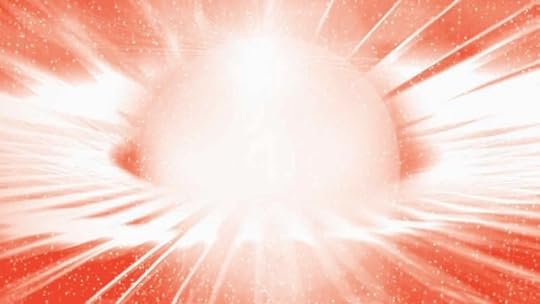
Some of you may have seen the news from last week: Roche Limit is heading to TV via SyFy, with Fremantle (the producers of American Gods) and Heavy Metal producing. Which is great news! I, for one, couldn't be more excited. But, since the announcement, I've gotten a lot of questions about what this mean (and a lot of kind words as well—thank you for them all), so I figured I'd talk about this process a bit—kind of “how a bill becomes a law,” but repurposed as “how a comic becomes a TV show.”
This all started about two years ago when Heavy Metal optioned Roche Limit from me. Some of the people involved in Heavy Metal have a great history in film and TV (one them, in fact, produced one of my favorite movies of all time, Dark City), and they saw a lot of potential in Roche Limit. And, in a sense, they were right. Because just as soon as Heavy Metal announced the option, they received a call from Fremantle inquiring on the property. A little bit of time passed, some back and forth, and a few months later, Heavy Metal and Fremantle reached an agreement to co-produce a Roche Limit show together.
But let me back up and give a sense of scope here. At this stage, the reality of Roche Limit becoming, well, anything, was way far off. To be honest, options aren't all that rare. When you hear about a comic or book getting optioned, any and all enthusiasm should be tempered by who exactly is doing the optioning and what it's for. More times than not, when something is optioned, it's optioned by either a production company or maybe even a lone producer. And that's fine and great, but what an option means in this case is that the creator (or creators) is handing over the right for whoever is doing the optioning to shop the property around. Basically, the producer or production company is a conduit to the next, bigger step: Getting a network involved.
Now, this is where TV and film are different. In TV, hardly anything is going to be made without a network (and a network includes Netflix, Amazon, Hulu, etc.) already involved. There are cases where production companies will produce pilots and shop them to networks, but that doesn't happen too often. One, it's expensive to do that. And, two, shooting a pilot cements too many decisions—particularly the creative talent involved—that the network would generally like to have a say in. But with a movie, a producer can conceivably option whatever they want, get whatever director, actors, crew, etc., involved and get the thing made. Then, they go out and find a distributor.
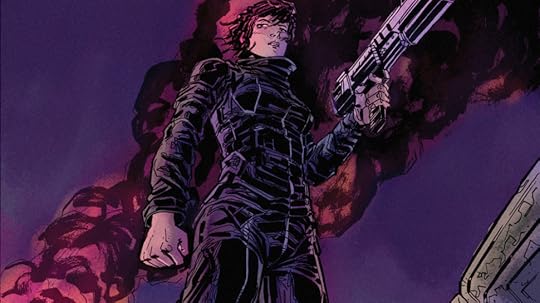
That said, if a comic or book is optioned by a production company, there's still a big hurdle (well, many big hurdles) to be leapt over. If it's option—or purchased, which is even better—by a network, now you're cooking. A network can finance it, produce it, air it—everything. Granted, they like to find partners—which is why, after the end credits of a TV show, you'll see like three different production companies credited—but they don't have to.
Also, I want to point out something important before someone pulls a “well, actually” on me: Mileage varies on these things all the time. Experiences vary wildly, and the ground I'm covering isn't law. It's a general sense of how these things work, filtered through my own experiences.
Getting back to Roche Limit: We had two producers involved in Heavy Metal and Fremantle, which was good. The next step, before talking to a network, was to get talent involved. When you start shopping to a network, you want to create a package that not only helps sell the show by having an established writer or director involved (typically it's one of these two), but it helps crystalize what the show would actually be. (And no, this doesn't contradict what I said earlier about the network wanting to be involved in the creative hiring process—to shop, you just need one person, not an entire crew). The idea is that this person can come in and create a clear vision of what the adaptation would be—and with that vision, they can sell a network on the awesomeness of said adaptation. They can go into a room with network execs and sell the show in a way that leaves them dying for more—that's when they're compelled to buy in. Not only that, but this person will offer a steady hand; they're experienced and have the credentials that ensure everyone involved that not only can they craft this amazing story, but they can handle the responsibilities of leading the show, at least in part.
That said, Fremantle and Heavy Metal found their man in Will Pascoe, who'd been a writer on Orphan Black, Shut Eye, and other TV shows. Will came in with a vision for Roche Limit that blew everyone away, and he clearly has the experience to do the job. And, this doesn't even mention that fact that he's a great, great guy and a huge Star Wars fan.
At this point, we had Heavy Metal, Fremantle, and Will. Those are really good pieces. So, it was time to shop. Generally, what happens here is the producers leverage their relationships to get meetings with networks all over town. And in these meetings, the writer or director has their sales pitch ready, and they go in and try to dazzle the network execs. And this happened with Roche Limit, sort of. See, SyFy had expressed interest in doing an adaptation for years, since the option first happened. But, for one reason or another, they never made the decision to move forward—not until all these pieces, particularly Will and his experience and his vision, were connected to the property.
Now, think of this whole process as an inverted funnel. At the top are options, the first step, and the most common one, in seeing an adaptation to the end. The next step is often conflated, with the talent and the network oftentimes running parallel tracks, though the talent is usually first. The next rung down the funnel is when things starting getting serious—most adaptations die at the option level. But Roche Limit didn't (thankfully). Instead, we're at the rare point where actual things are getting made. It's not just meetings and pitches and all that: Will is writing the script for the pilot episode, which is a serious—and amazing—commitment on SyFy's part.

And that's where we're at. What's next? Well, a lot of things. Right now, Will, Fremantle, Heavy Metal, and SyFy are all discussing the scope of the show on a whole as well as the pilot episode itself. I'm involved in the process, working with Will as he steers this ship (and though I'm working with him, he's unquestionably the person at the helm). And, let me tell you, I've read Will's outline for the episode, and we've talked about the things to come, and it's all incredible. Seriously, he's taken the core of Roche Limit, the heart and soul, and fashioned it in a way that's totally recognizable but also streamlined and completely fresh. It's so good it makes me jealous that I didn't do the things in my scripts that Will is doing in his.
Once we're past this stage, Will goes off to write the entire first episode, start to finish. Then he likely turns it over to Fremantle and Heavy Metal, and they give their notes and feedback, then Will makes revisions. But once they're all set, the script moves on to the execs at SyFy, and they decide what's next—and this is where the funnel narrows once more. Based on the script and the confidence they have in the show, SyFy can either 1. order a pilot episode to be made; 2. order an entire season; or 3. do nothing, and the show dies right there and then.
Let's all seriously hope for 1 or 2!
That, my friends, is where Roche Limit is at. More updates to come as I have them!
March 7, 2018
On Pitching: The Ones That Get Away, Why That's Okay, and Why JAWS Should Be Your Guide
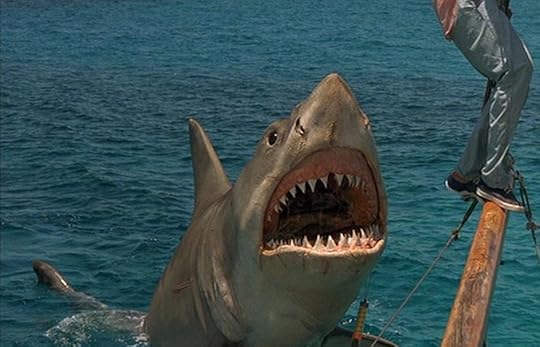
About three years ago, I found myself in a creative drought. For whatever reason, I couldn't get any of my ideas over the hump—the point in which an idea becomes a story (and, hopefully, a good one). Now, droughts happen for a number of reasons. Maybe you just don't have any unique, compelling ideas that drive you to build a story. Maybe you have a story, but you don't really know what it's about or how to tell it. The causes for why, creatively, things aren't click are numerous. And trust me, every single writer goes through droughts, and the troubling fact is that they can often lead to anxiety, doubt, and a whole mess of other bad things. So, the first thing I want to say is this:
If you're in a dry spell, don't panic.
I know it's not easy. When we fail, when we fail to meet our expectations, when we aren't able to perform at this thing we love, our first instinct as writers is to second guess everything. I've been there many times, and I'll be there again. But we all have to remember that, in all things, failure is natural. Inevitable, even. Now, I know this is hard to keep in mind when you're pounding your head against a desk, terrified that you'll never conjure another story worth telling, but going through creative valleys is part of the writing life. You can't be on all the time, nor can every key you punch create a magical unicorn. You're going to stink at what you do sometimes. That's all there is to it.
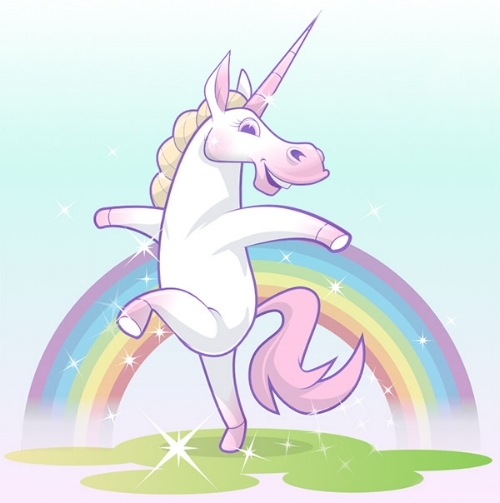
And while accepting that you're going to stink is important, what's more important is understanding that, as painful as they may be, sometimes being in a slump can be a good thing.
I'll explain.
See, while I was in this dry spell, I was still working. I had to—writing is simply what I do, all the time. Plus, you know—bills. There was a pitch I was working on, and I had very, very high hopes for this to be my first novel (this is predates Black Star Renegades by a few months). I worked on this thing for months and months. I shared it with friends and got feedback; I went back and forth with my agent with it, revising and reworking. But no matter how many pieces I moved around, changes I made, no matter how much work I put into this pitch, it refused to come together.
And you know why? Because it wasn't any good.
But let's talk about this, because it's not that simple. Because bad pitches—they're sometimes just a degree of from becoming a great pitch. Sometimes, they just need the slightest tweak, and everything falls into place. Other times, bad pitches are just bad, and there's all there is to it. But why? That's the trick—as writers, we struggle to recognize when our ideas aren't any good, and we struggle even more to know when it's time to let go. With this pitch in particular, I expended waaaaaay too much effort into when I could have been working on something else. But I couldn't see how busted my idea was; I couldn't see how it was going nowhere fast.
Now, there's any numbers of reasons why some pitches and ideas don't pop. Too many to count, so let's talk about the pitch I'm referring to in particular.
The idea I was trying to work around was simple: We're all familiar with the story of a machine becoming more human, right? Well, my idea was to invert that and tell a story of a human becoming more like a machine. It was meant to be a commentary on our relationship with technology, social media, things like that. How tech dehumanizes us more than the other way around.
That idea—I still think it's pretty cool. Not totally novel, but there's a lot you can do with it to make it interesting. But that idea alone, that core as described above—it's VERY broad. And when your starting point is general, everything gets even more vague from there. The story itself was about this former marine and current journalist who travels to Brazil—the cradle of robot tech in this world—to investigate his friend's death. The plot, though, quickly unravels. The tech world he encounters, I never really got a handle on whether I was talking about leaps in social media technology and how its impacts humans, robotics, or both. So everywhere the protagonist went, his encounters and conflicts were so incredibly broad—to the point of being formless. And let me tell you something important—seriously, mark this down:
Being specific, in all things, is key.
Which brings us to Jaws. Not only is it a great movie that forever changed the American cinematic landscape, but it also has the most perfect—and simple—concept behind it:
A killer shark terrorizes a small town, and the only man who can stop it is afraid to go into the water.
I can talk about this for hours. But let's just look at the basics:
One: The conflict is totally clear. There's a evil shark killing people, and it needs to be stopped.
Two: But wait—there's another layer of conflict. The only person who can stop the shark can't stop the shark. Now, not only does this raise the stakes, but it also gives a great character conflict. Will this character overcome his fear? Can he save the lives he's sworn to protect?
It's simple, it's dynamic, and it catches your attention immediately. This, my writer friends, is the gold standard for not only pitching a story, but getting to the heart of a story. If you can't boil your idea down to a few sentences, you're in trouble.
Take a few more examples:
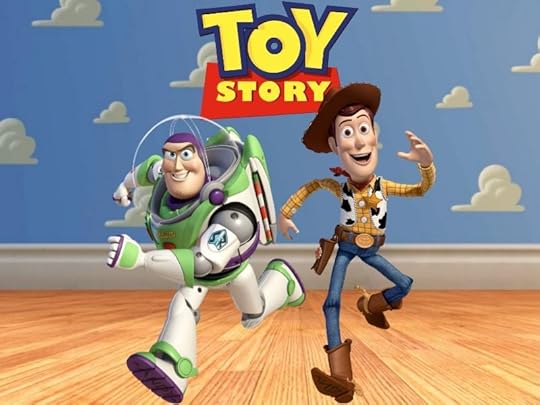
Toy Story: When a new toy is introduced to the playroom, the former favored toy becomes jealous and tries to assert his place on top. These two favorite toys find themselves lost in the world and have to work together to return home.
Or my own book, Black Star Renegades: A young man comes into possession of the most powerful weapon in the galaxy. He's not meant to wield it, but if he doesn't rise to the call, the entire galaxy is screwed.
Granted, every story typically has more going on it. Toy Story is about friendship and loyalty; Black Star Renegades is about self-confidence and the power of unity. But what you need to tell a good story, fundamentally, is clarity. First and foremost—know what the story is, and be able to boil it down to a few sentences.
That is what defines a good pitch.
Also, a final word, because there's one ingredient in this mysterious cocktail that often gets overlooked. While having a great idea is one thing, loving your great idea is something totally different. And, believe me, to make your idea truly work, you absolutely, positively have to love it. Almost as much as Lenny loves rabbits in Of Mice and Men. Not quite that much, but as close as you can possibly get without, you know, breaking your idea's neck. Believe me, people know when you love something you've worked on and when you don't. It's not an accident that multiple reviews for Black Star Renegades have commented on how much fun I must have had writing it, and how the book is (as Kirkus said) “joyous and impossible not to love.” It's because that's true. I had the time of my life working on that book, and it was because I loved everything about it.
The point, in all this, is that sometimes—well, maybe all the time—the learning process in writing can be a painful one. I spent a lot of time on the aforementioned failed pitch, put a lot of hope into, and it went nowhere. But I learned from it—and what I learned made me better prepared for my next pitch, which turned out to be Wasted Space (my new comic coming out April 18 from Vault Comics).
My last bit of advice is to, well, follow what I laid out here. But not only that, remember that transforming your idea into a pitch as good as Jaws is really, really hard. If it was easy, more people would do it. Allow yourself to fail. To not get it right. To waste time pursuing an idea and have it go nowhere. But—learn. Learn why this particular idea didn't work, and don't make the same mistake next time.
Two other things:
If you like my writing advice, good news! I'm offering free tutorials, like this one, and it's only available to newsletter subscribers. Signing up is easy as can be. Either enter your email in the box in the upper right hand of this page, or follow this link.
And finally, if you'd like to support my work, that'd be great! My debut novel, Black Star Renegades, came out in January; if you like Star Wars and space adventures, this IS the book you're looking for.
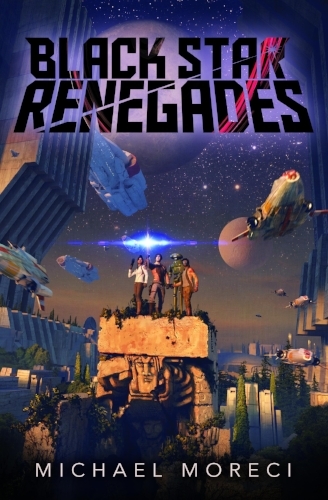
Also, as mentioned above, I have a new comic coming out April 18—Wasted Space, which I describe as what would happen if Preacher was written by Philip K. Dick. Preorder it with your local comic shop today!
Thanks for reading—now get out there and write!
February 7, 2018
Let's Talk About Wasted Space
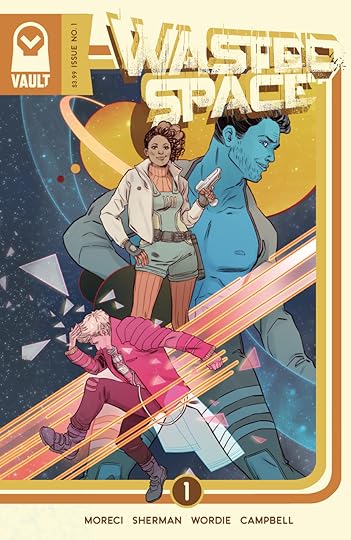
Hey gang!
Today, I'm going to take a second to talk about WASTED SPACE, my new series coming from Vault Comics.
There's a few things:
1. What is it? Preacher by way of Philip K. Dick. It's sci-fi romp about a supposed prophet, Billy Bane, who got things all wrong and the galaxy has been burning ever since. All he wants is to waste away in the darkest corner of space with his best pal Dust, a supercharged Fuq bot. But when a new prophet comes calling, Billy is summoned to save the galaxy he's at least partially responsible for destroying.
Too bad he couldn't care less.
2. It's the best series I've ever done. And not even because of my contribution--I'm surrounded by amazing people--from Hayden Sherman, the artist, to Adrian Wassel, the editor--and together, we've elevated this book into something special.
3. Vault's a smaller publisher, though they're doing GREAT stuff. But because they're not DC, Image, etc, we have to battle a bit to get this book on the shelves. Which is fine--I'm ready to fight for this book day and night. But we can use some help. If like my work, if you like how this book looks, *please* be sure to tell your retailer to order it, tell your friends about, spread the word. Cool?
Okay, now let's bask in the glory of the first issue's dual cover, from Hayden (below) and Marguerite Sauvage (above).




